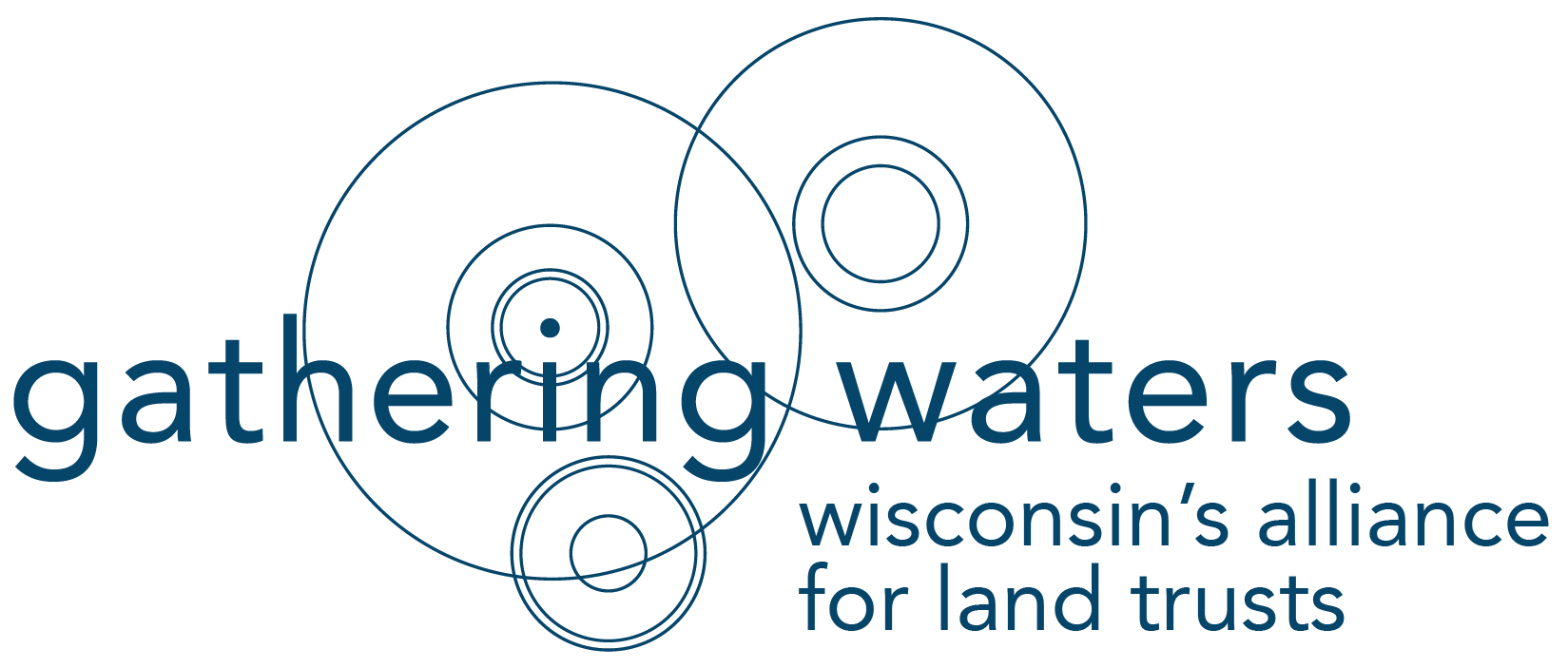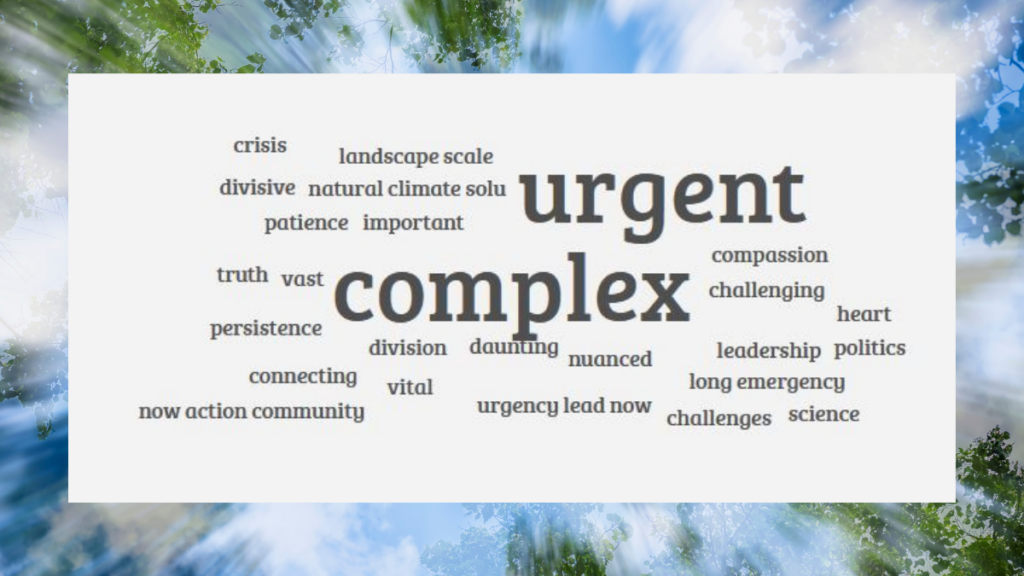As the effects of climate change are becoming increasingly apparent throughout Wisconsin, land trusts feel an urgency to play a bigger part in solutions. Extreme weather events—like tornadoes in December and widespread summer flooding—are likely to become even more common and severe.
Nature offers some of the best defenses against the consequences of climate change. Forests, grasslands, and wetlands remove carbon from the air while limiting damage from large storms and providing refuge for wildlife in the face of rising temperatures.
Helping nature so it can help us is at the heart of what land trusts do. Some land trusts have set strategic priorities around climate resilience. Others are in the early stages of considering their role in addressing climate change. In every case, communicating about climate change is fundamental—from board member buy-in on priorities, to talking to funders, partners, and community members.
To support this work, our land trust members have been asking for resources to effectively communicate the vital relationship between land trust work and climate change.
In January and February 2022, Gathering Waters hosted a four-part virtual series, Let’s Talk Climate Change: Conservation, climate action, and communication. A dedicated group of staff and board members from 20 land trusts and eight partner organizations gathered on Zoom to explore how land conservation is climate action, to learn how land trusts are communicating about this connection, and to consider how to engage in broader climate change debates in our communities.
-
We heard from Paul West about the importance of land protection, management, and restoration along with a range of actions outlined by Project Drawdown to reduce emissions sources, support carbon sinks, and improve society.
-
Carol Abrahamzon at Mississippi Valley Conservancy and Karen Yancey at Geneva Lake Conservancy talked about why they are prioritizing communications about climate change: recognizing that their communities are looking to them for leadership, and that land conservation successes are in jeopardy if land trusts aren’t galvanizing action to address the climate crisis.
-
Kelsey Kuhnhausen and Fiona Noonan joined us to share the Coalition of Oregon Land Trusts’ impressive climate change communications toolkit and messaging matrix, as well as their ongoing work to foster collaboration across organizations. Challenges that Oregon land trusts face resonate here, including capacity and funding limitations at individual land trusts.
-
Chelsea Chandler with Clean Wisconsin placed land trust work in the context of the rapid and disruptive changes we are already experiencing. Land trusts have important roles to play on the ground and speaking up about climate change. She outlined pertinent issues of renewable energy siting, not in my backyard (NIMBY) attitudes, and the false choice that rejecting renewable energy can somehow preserve the rural landscape, which is deeply imperiled by climate change.
Convening these conversations was a good start; it underlined the need for our collective focus on effective communications. With input from our member land trusts, Gathering Waters will develop a suite of resources to support land trusts to communicate the roles they can play in addressing climate change challenges.
Want to learn more? Find recommended reading materials from the virtual series here. And join us for the in-person portion of the 2022 Land Trust Conference in Madison on May 18-19 where we’ll continue these discussions. Registration is open through May 3 (register by April 19 for early-bird rates).
Dive into more helpful references we have compiled on communications campaigns and Wisconsin climate trends and strategies, including the 2021 Assessment Report on Wisconsin’s Changing Climate, just released in February by the Wisconsin Initiative on Climate Change Impacts.



